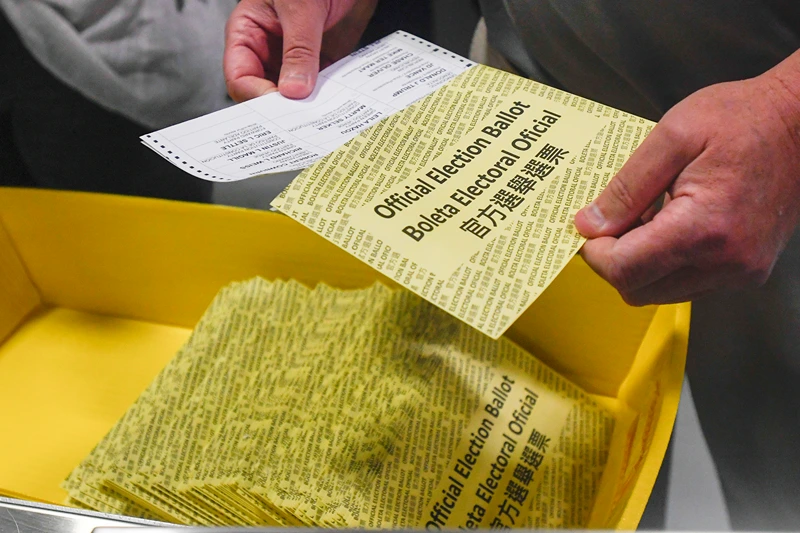Pennsylvania Senate contest headed toward a recount, and possibly litigation

As counties continued to sort out outstanding ballots on Wednesday, the campaigns were arguing over which ones would count.
The Associated Press declared the race last week for McCormick, concluding there were not enough votes to count in the areas Casey won for him to gain the lead.
Casey had until noon on Wednesday to decide whether he would waive his right to have a recount of the entire state. Democratic Gov. Josh Shapiro’s top election official Al Schmidt, a Republican Secretary of State, announced that preliminary voting results triggered the legally required statewide count.
McCormick was ahead by 28,000 votes as of Wednesday out of the 6.9 million ballots that had been counted. This is within the 0.5% threshold required to trigger a statewide automatic recount.
|
The counties must start the recount by no later than November 20 and finish it before noon on November 26. The process involves scanning paper ballots with high-speed scanners. Former election officials claim that this may not affect the results by more than several hundred votes.
Jeff Greenberg said that the number was “infinitesimal” compared with the total votes cast. Jeff Greenberg is a former Mercer County Elections Director.
McCormick, meanwhile, was in Washington, DC this week to attend Senate orientation meetings and caucus meeting in order to select a new leader. This is after Republicans took control of the U.S. Senate following the election last week that saw Donald Trump take the White House.
Casey still hasn’t conceded, and while Republicans are pressuring him on social media his campaign manager stated in a Wednesday statement that “McCormick, and his allies, are trying to disenfranchise Pennsylvanian voters.”
Adam Bonin is a lawyer for the Casey campaign. He said that Republicans are aggressively and systematically challenging provisional ballots from registered Democrats. This delays the voting process.
Bonin stated that “what we see this year is more organised, more disciplined and more comprehensive than we saw in 2020.”
McCormick’s campaign consultant, Mark Harris, said large Democratic-controlled counties were dragging out the process by not adding the results of processed ballots to vote totals.
Harris said that the McCormick campaign challenged provisional ballots, which it was allowed to do under law.
Harris stated, “This is a clear attempt to use lawfare in order to chip away our lead.” This is not going work. Dave McCormick will be the Senator.
The counties were busy processing tens thousands of provisional votes and hearing challenges against some of them from lawyers for Casey McCormick, and the state parties. Provisional ballots are typically cast on Election Day at polling places and separated from regular ballots when election workers need to spend more time determining a voter’s ability to vote.
Litigation may be possible. In Bucks County, the majority-Democratic election board decided to count over 400 mail-in votes that lacked a handwritten date on their outer envelope. Republicans have challenged this decision and opposed it repeatedly in court.
Bucks County’s ruling is consistent with other decisions made by state and federal courts, which have declared it illegal or unconstitutional to throw away such ballots. Higher courts, including the State Supreme Court on November 1, have blocked these decisions. Litigation is still ongoing.









No Comments